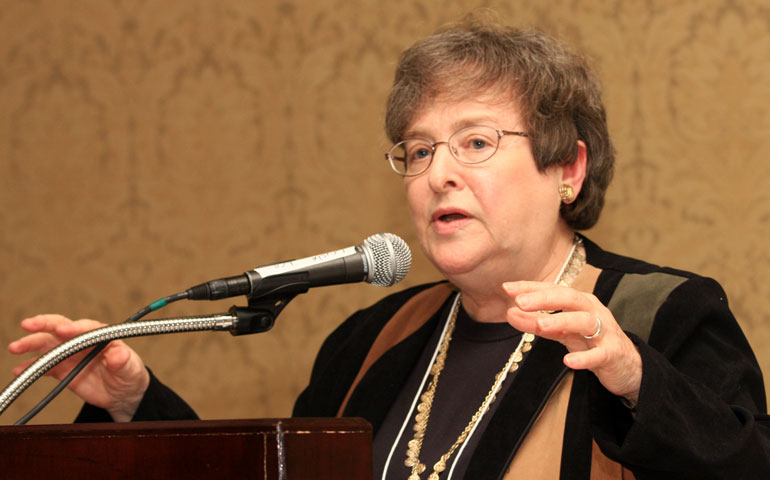
"Who are your heroes?" asked a colleague at the Catholic diocesan newspaper where we both worked.
The question, posed two decades ago, had stumped me. Was it possible that at age 30 I was already so jaded that I couldn't identify someone I admired for their extraordinary achievements?
My co-worker helped me out, suggesting a number of Catholic women I had interviewed and gushed about when I returned to the newsroom.
He was right: I did have heroes. But I had gotten hung up on the word. As schoolchildren, we learned that heroes win battles, lead nations or found long-lasting organizations. As Catholics, we are taught that our heroes are saints, who have spiritual accomplishments, not to mention bona fide miracles, to their credit.
None of those people -- presidents or popes -- felt like a personal hero to me. It wasn't until I started looking closer to home that I realized that dozens of women and men inspire me with their life's work and journeys.
My own heroes include relatives, friends and colleagues, of course. But I also count as heroes some more famous folks like author and activist Benedictine Sr. Joan Chittister, spiritual midwife Servite Sr. Joyce Rupp, and the four churchwomen killed in El Salvador.
They are heroes, to be sure, but they are not "superheroes." In fact, part of what inspires me most is that their stories include loss, struggle, even tragedy, as well as great accomplishment or success. Their stories are real.
Such inspirational but real stories of faith are told in a new book series from Liturgical Press called People of God. The Minnesota-based Catholic publisher does books about theology, spirituality and liturgy, but wanted to better reach people in the pews. The editors realized that "it's seeing others live it out in authentic ways that really makes the theology and doctrine compelling and relevant," said Barry Hudock, publisher for the parish market. "So we said, 'Let's tell some stories.' "
The brief (approximately 130-page) biographies include popes, like Francis and John XXIII, and saints, like Archbishop Oscar Romero, but also extraordinary Catholics you may not have heard of, such as Daniel Rudd, the son of a former slave who went on to become a journalist and founder of the National Black Catholic Congress, and Corita Kent, the American nun and pop artist who designed one of the U.S. post office's "Love" stamps.
The People of God title is taken from Lumen Gentium, the Second Vatican Council document that affirmed that the church belongs to all the faithful. Hudock uses that definition of church in choosing subjects, selecting not only clergy and religious women, but also lay Catholics who work in social justice, television, literature and other fields.
"We want real people that others can identify with," he said. "Along with some very well-known people, we're also featuring some lesser-known folks who deserve to be better-known."
Examples of the former include Dorothy Day, Cardinal Joseph Bernardin, Fr. Thomas Merton and Flannery O'Connor. Lesser-known subjects include Shahbaz Bhatti, the Pakistani politician who was assassinated in 2011, and Georges and Pauline Vanier, parents of the co-founder of the L'Arche communities. Jean Vanier also is featured in a People of God volume. Although most of the subjects have died, some are still living, such as actor and activist Martin Sheen.
"These folks are heroes not because they're perfect, but because they're not," said Hudock. "I love that they each have their own sets of weaknesses, insecurities and sins, just like me. Despite all that, they lived lives marked by extraordinary courage, compassion, faith and love, and that tells me I can, too, despite all the things about myself that might tempt me to think I can't."
Last year, Hudock asked me to write a People of God book about St. Joseph Sr. Elizabeth Johnson, the Catholic feminist theologian whose book Quest for the Living God was criticized by the U.S. bishops in 2011. I was familiar with her work, especially her groundbreaking book She Who Is, but didn't know much about her life. What I learned, through interviews and from access to her archived papers, is a story of courage and faith, despite the struggle of being the "first woman" in many of her positions.
Johnson is not perfect, but she has remained dedicated to the church and, even more importantly, to her own lifelong quest to understand who God is. That makes her one of my heroes.
[Heidi Schlumpf is the author of Elizabeth A. Johnson: Questing for God (Liturgical Press, 2016).]




